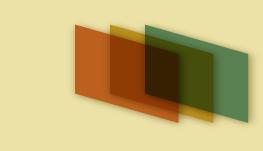Seven Kinds of Power

Overview
Originally Published: 04/26/2011
Post Date: 05/01/2011
Summary/Abstract
The following is a guest post by Steve Hauptman, LCSW, and therapist practicing in Mount Sinai, New York on Lisa Fredericksen's Blog www.breakingthecycles.com. Steven is a Gestaltist and leader of Interactive Therapy groups.
Content
If you love an addict, or live with one, or depend on one in some way, you are probably in, as the old saying goes, nine kinds of pain. And I'm guessing that, whether or not you realize it, the very worst of these pains comes from being confused about the difference between power and control. No, they're not the same. In some ways, they are opposites. One difference is: power is possible, but control is usually an illusion. Another is: seeking power can set you free, while seeking control can make you crazy. Let me explain. Control (as I define it) means the ability to dictate reality. To get life itself — people, places and things — to meet our expectations. Power, on the other hand, means being able to get your needs met. To take care of yourself. To not just survive, but to heal, and grow, and be happy. Here's an example of the difference: Imagine your rich uncle dies and leaves you control of his multinational corporation. So you wake up one morning the CEO of Big Bux, Inc. You go to your new job. You sit behind a huge desk. Four secretaries line up to do your bidding. You have tons of control. You can hire and fire people, buy things and sell things, build plants or close them, approve product lines and advertising campaigns, manage investments, bribe congressmen, you name it. How do you feel? If you're anything like me, you feel crippled by anxiety. Bewildered and overwhelmed by your new responsibilities. Disoriented. Panicked. Anything but in control. Interesting, no? There are two other interesting differences between control and power. ~ Control looks outward, mainly at other people, places and things. Power looks inward, to your own feelings and needs. So control-seeking pulls you away from yourself, away from self-awareness and self-care. ~ Control operates paradoxically. The paradox goes like this: The more control you need, the less in control you feel. Which means if you depend on getting control to feel safe and happy, you don't feel safe or happy most of the time. Chasing control is a lot like chasing a train you can never catch. Power, though — rooted in healthy, intelligent self-care — is a real possibility. Want to become more powerful? Here are seven ways to do it: (1) Detach. Let go of what you can't control anyway. That may be a situation, or a person, or that person's behavior. If it's a person you love, you can detach with love, as they say in Al-Anon. Detaching doesn't mean you stop caring. It just means you acknowledge your limitations. And when you do that, an enormous relief often follows. (2) Refocus. Start by shifting your focus from outside — people, places and things — to inside — your own needs, thoughts and feelings. Happiness is an inside job, and most of the answers you need are there. (3) Take care of yourself. Stop overcontrolling yourself, and learn to listen to your body instead. Hungry? Eat. Tired? Sit. Rest. Maybe take a nap. (Naps are great.) Lonely? Seek out safe people. (More on this below.) Angry? Scream (into a pillow, maybe, so you don't scare the neighbors). Sad? Let yourself cry. It's how the body naturally relieves tension, and it helps. (4) Educate yourself. You're not crazy; your pain means something. Your job is to find out what it's trying to tell you. Education can take many forms, from Googling alcoholic family or codependency to reading self-help books (start with Janet Woititz's Adult Children of Alcoholics or Melody Beattie's Codependent No More), or listening to tapes (try the library), or talking to a friend, or attending a self-help meeting, or finding yourself a good therapist. After his first Al-Anon meeting one of my clients told me, “It was like a light coming on in a dark room, and suddenly I could see all the furniture I've been tripping over.” Hey, why live in the dark if you don't have to? (5) Get support. No one gets through life alone. (Even if you could, why would you want to?) Seriously consider checking out a self-help program, like Al-Anon or Nar-Anon or CODA. You're probably scared of that first meeting. That's okay; everyone is. Go anyway. It won't kill you, and you can't know beforehand what you'll hear. A good meeting can save your life and your sanity. (6) Listen to feelings. This is a big one. Living with an addict usually requires hiding your feelings, sometimes even from yourself. But feelings are essential. You need to get them back again. Hang out with people who are trying to reclaim their feelings, and who can keep you company while you're trying to reclaim yours. (7) Have faith. Develop your spiritual life. No, you don't need to join a church. You don't even need to believe in God. You do need to believe in something bigger than you, something you trust even when you don't understand it. Call it Nature. Call it The Force. Al-Anon calls it Higher Power, but you can call it what you like. I used to reject the idea of God, but I always believed in psychology. Then I heard Scott Peck suggest that it's not unreasonable to replace the word God with the word unconscious. That permanently reframed the idea of God for me. I realized there was some intelligence inside I could listen for, and which would guide me if I let it. (I might doubt the existence of God, but who can doubt the existence of that voice? That part that Knows Better?) So that gave me something to trust. Hey, we all need some invisible support.





